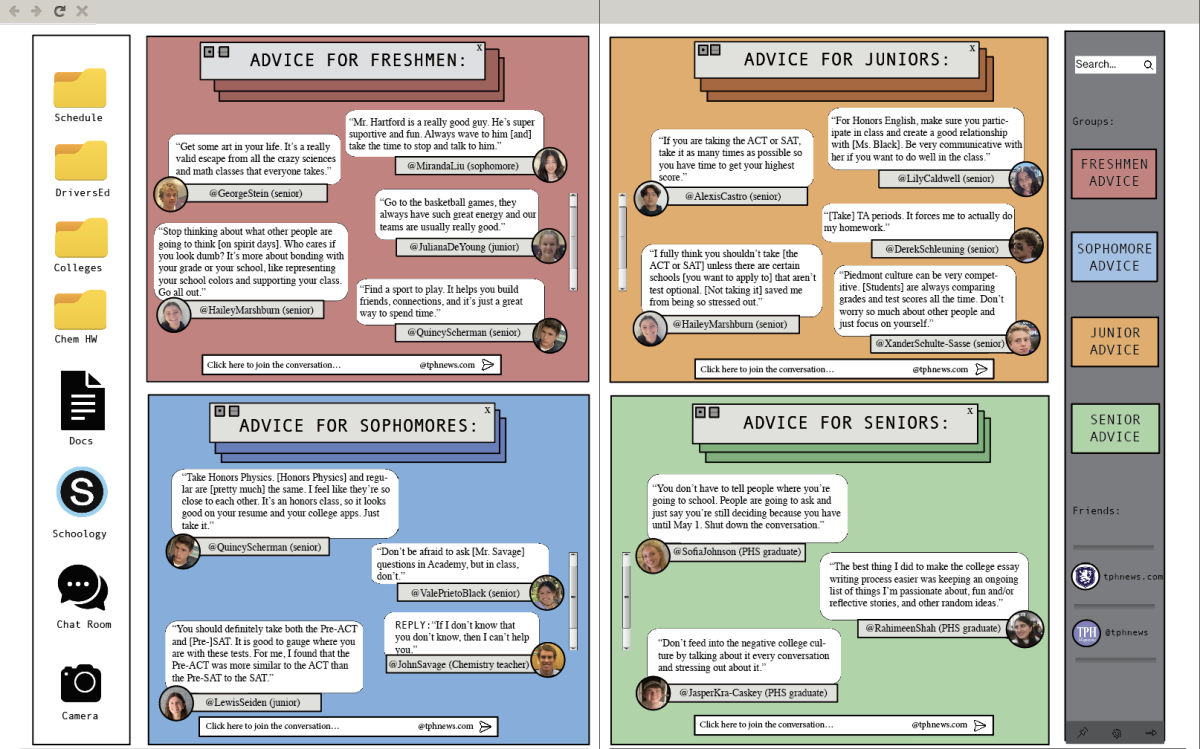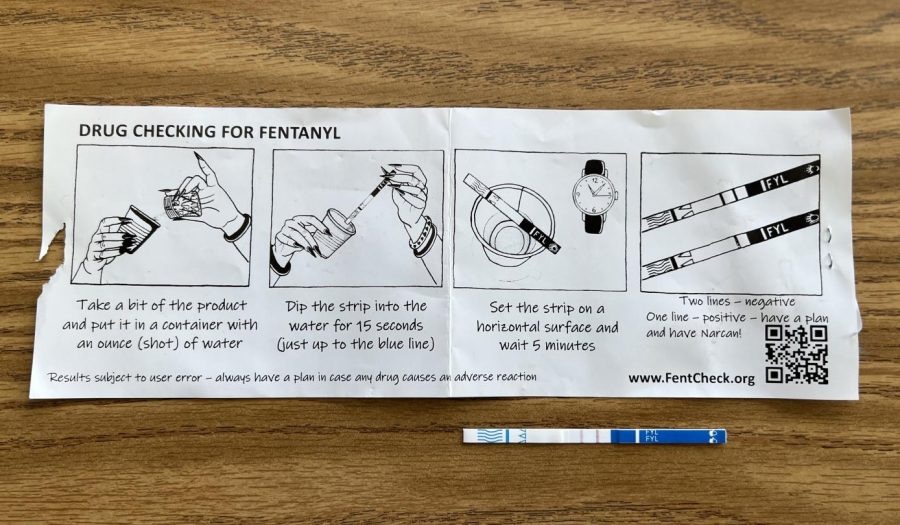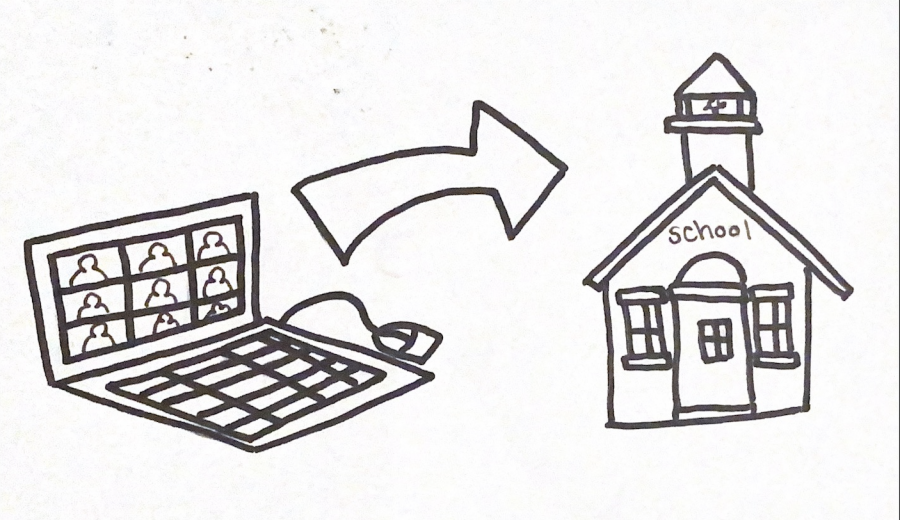An outbreak of pertussis, commonly known as whooping cough, has broken out across the high school campus.
According to district nurse Joan Edelstein, whooping cough is a bacterial infection that causes respiratory problems that can last for three to six weeks. The illness is characterized by violent coughing fits followed by a “whooping” sound when one tries to take a breath.
Edelstein said that although it cannot be confirmed, it is believed that the outbreak began when PHS rowers traveled to Long Beach for a regatta over Spring Break.
“There was a student who they were later notified about that had pertussis, and that may be, but we really don’t know for sure,” Edelstein said.
“Even those people who can get it when they’re immunized tend to get only a very mild case that is not as contagious and is more difficult to spread,” Edelstein said.
Because of the outbreak, the school was required to contact the Health Department to look into the matter. The school worked with the Health Department to investigate the outbreak in order to contain it.
The administration looked at students who were confirmed to have the infection, then looked at their schedules and attendance in order to identify which classes had been exposed to whooping cough. The Health Department used the information to generate class specific letters to parents.
“So if you were in class where you were exposed to it, there wouldn’t be one letter that all 200 students in the class received, but a specific letter for you math class, or your English class, or your sports team, any extracurriculars you might have been a part of for more than an hour,” Mapes said.
Edelstein said that the main problem with the illness is that when it spreads to infants or young children, difficulty in coughing can lead to brain damage, the development of mental delays, and even death.
“Our biggest concern is in protecting the infants,” Edelstein said. “Of course we don’t want anybody to get sick, but that’s our main concern.”
Edelstein said that because a majority of students have been vaccinated for whooping cough, it is difficult to see the signs that precede the actual cough. Students who are vaccinated have been immunized completely and are unlikely get the illness. However in the few students who do get whooping cough, they often do not show symptoms.
“If they think they might be exposed or might have exposed someone else then they should see their [medical] provider,” Edelstein said. “The only way to actually find out if it is whooping cough is to be tested.”
According to Edelstein, whooping cough is tested through a nose swab of mucus that is tested to see if there is pertussis in the mucus. Results can take several days and if a patient is found to have the infection, they are put on antibiotics and subject to quarantine for five days. Edelstein said that students who are confirmed to have the infection should be careful not to spread it.
“First of all, you don’t come to school,” Edelstein said. “That’s the most important thing.”
Assistant Principal Eric Mapes said that whooping cough is spread through close contact between close friends, siblings, sports teams, and anywhere student spend considerable amounts of time.
“That’s where there is a higher likelihood of exposure if somebody does have it,” Mapes said.
Edelstein said that the best preventative measure to take is to get vaccinated.
Sophomore Maryse Suppiger helped send out letters to PHS parents to inform them about the outbreak. Suppinger said that she thinks that students and parents should inform themselves on the topic to keep it from spreading.
“If people know then they can just be more careful,” Suppiger said.
Junior Max Braun was sent home Monday, May 12 when teachers suspected he might have the infection.
“I honestly just thought it was seasonal allergies or a mild cold, not whooping cough,” Braun said.
He said that he did not suspect pertussis because he thought that he had been vaccinated.
“I just assumed I was vaccinated but it turns out I wasn’t,” Braun said.
Braun said that he felt the most sick during the week of STAR testing.
“Almost every night I would wake up and be coughing non-stop,” Braun said.
Once he began to feel better, Braun was sent home for whooping cough. He was officially diagnosed with whooping cough on Thursday, May 15. He spent the next five days in quarantine at home, taking antibiotics, and returned to school on Monday, May 19.
“For me, whooping cough wasn’t that bad,” Braun said. “Aside from sleeping and making up work. I watched a ton of shows on Netflix. I was basically confined to my house for a week and I eventually got really bored.”
It is unknown if the outbreak has reached the other schools in the school district, however the entire district is currently being monitored to see if other cases arise.
“This is an important thing for kids to know and I think for me the most important thing is to let everyone know that the whole purpose of this is to protect babies,” Edelstein said.
Latest Stories
- April Crossword Key
- Update on Teacher Contract Negotiations
- Staff Reductions
- Student Perspectives On APT Negotiations
- Timeline Of Teacher Contract Negotiations
- TPH Weekly Playlist 8: Ryan Ehteshami
- Hiring of Tristan Keene
- Dive into Diversity Week
- Getting to know Julien Lee
- Got Microchips? Reece Beck Can Help










































